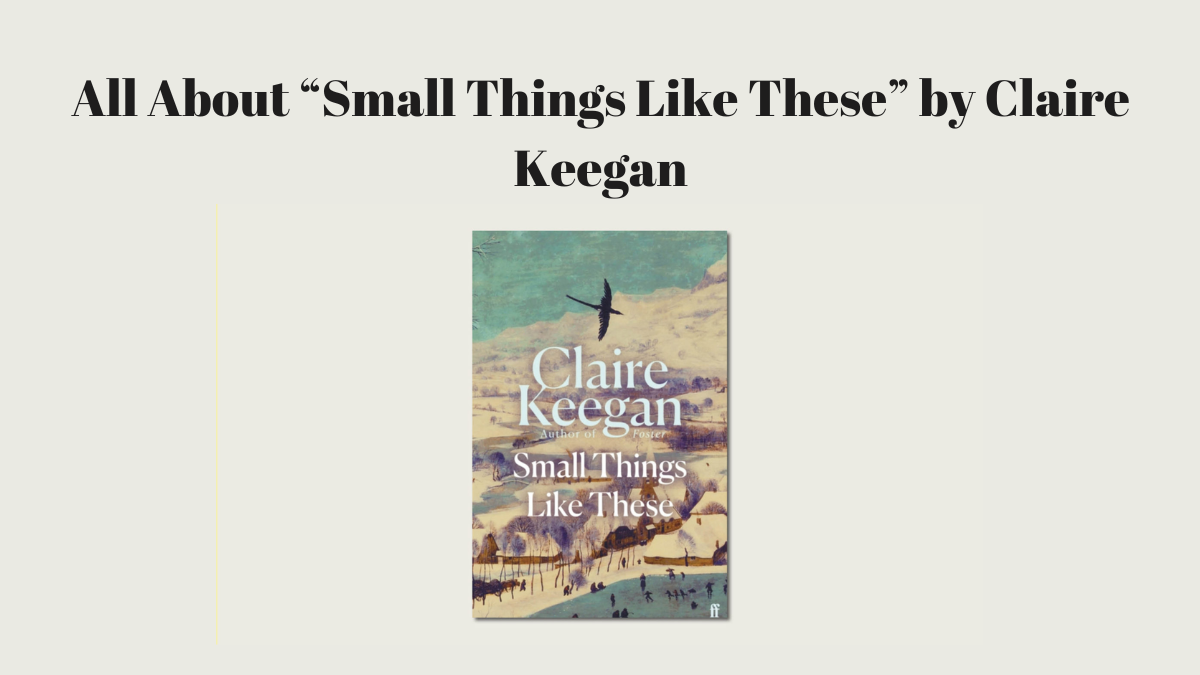Claire Keegan’s “Small Things Like These” is a powerful historical fiction novel that delves into the lives of teenagers who fall pregnant out of wedlock in Ireland during the 1960s. The story revolves around Bill Furlong, a coal and timber delivery man, and his family as they navigate the complexities of societal expectations, family secrets, and personal struggles.
In this review, we will explore the themes, characters, and historical context of the novel, providing a detailed analysis of this thought-provoking and emotionally charged book.
Contents
What is the historical context
The novel is set in the 1960s in Ireland, a time when the Catholic Church held significant influence over the country’s social and cultural fabric. The Magdalen laundries, workhouses for women who had fallen pregnant out of wedlock, were a harsh reality for many young women.
These institutions were run by the Catholic Church and were notorious for their brutal treatment of the women and children who lived there. The novel sheds light on this dark period in Irish history, highlighting the struggles and hardships faced by young women who were forced to live in these institutions.
Who are the characters
The novel’s protagonist, Bill Furlong, is a complex and multifaceted character. He is a coal and timber delivery man who has a loving family and a seemingly normal life. However, his past is marked by his mother’s teenage pregnancy and the subsequent secrecy surrounding it. Bill’s resentment towards his mother and the societal expectations placed upon him is palpable throughout the novel.
His character serves as a symbol of the struggles faced by many young men during this period, who were forced to navigate the complexities of family secrets and societal expectations.
Themes
The novel explores several themes that are relevant to the historical context in which it is set. One of the primary themes is the struggle for independence and autonomy faced by young women who fell pregnant out of wedlock. The Magdalen laundries were a symbol of the control and oppression exercised by the Catholic Church over women’s bodies and lives.
The novel highlights the ways in which these institutions were used to punish and shame young women rather than providing them with support and care.
Another theme present in the novel is the concept of family secrets and the ways in which they can be both a source of comfort and a source of pain. Bill’s family is marked by secrets and lies, which are used to maintain a sense of normalcy and respectability.
However, these secrets also serve as a source of tension and conflict, highlighting the difficulties of navigating the complexities of family relationships.
Style and Structure
Keegan’s writing style is characterized by its simplicity and elegance. The novel is written in lyrical and poetic prose, which adds to the emotional impact of the story. The structure of the novel is non-linear, jumping back and forth in time to reveal the events that have led Bill to the present moment.
This structure serves to heighten the emotional impact of the story, as the reader is slowly pieced together the events that have shaped Bill’s life.
Conclusion
“Small Things Like These” is a powerful and thought-provoking novel that sheds light on a dark period in Irish history. The novel’s exploration of the struggles faced by young women who fell pregnant out of wedlock and the societal expectations placed upon them is both poignant and timely.
The character of Bill Furlong serves as a symbol of the complexities of family secrets and the struggles faced by young men during this period. Keegan’s writing style is elegant and evocative, adding to the emotional impact of the story.
Overall, this novel is a must-read for anyone interested in historical fiction, Irish literature, or the struggles faced by young women during this period.
FAQs
When and where is the story set?
The story is set in 1985 in a small town in Ireland called Ne Rose.
What is Furlong’s job?
Furlong is a merchant dealer who specializes in coal and timber. He has about ten employees who work for him.
What is the main theme of the novel?
The main theme of the novel is the significance of humanity and the importance of small acts of kindness and compassion.
Is the novel a long or short book?
The novel is a short book with only 116 pages.
Has the novel won any awards?
Yes, the novel has won several awards, including the Orwell Prize for Political Fiction and the Kerry Group Irish Novel of the Year.
Read More:
- The Real Reason Invoices Go Unpaid — And How Collection Automation Can Fix It
- Best Places to Buy Diamonds and Engagement Rings Online
- Building Focus and Strategy Through Interactive Digital Experiences
- How Students’ Reading Interests Influence Their Motivation and Performance in Writing Assignments
- The Damages Resulting from the Use of Suboxone

Chandler is an avid automobile enthusiast who is passionate about all things on wheels. From the latest car models to classic vintage rides, I love exploring the automotive world’s intricate details and engineering marvels. With years of experience in test-driving, reviewing, and analyzing cars, I provide readers with comprehensive insights and honest opinions.



























